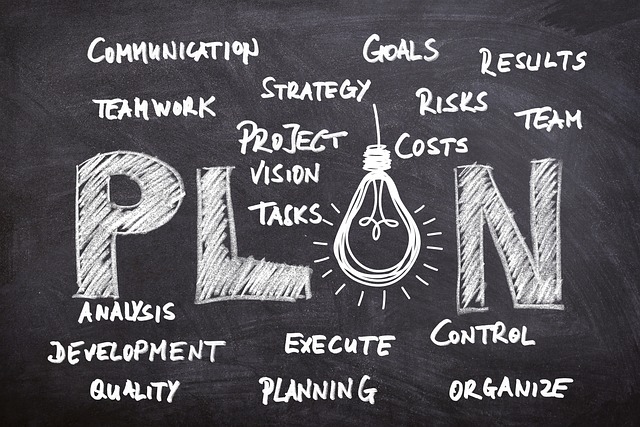In today’s fast-paced world, effective leadership can make all the difference. When we talk about leadership, we often focus on decision-making, strategy, and results. However, the foundation of successful leadership is actually rooted in relationship building. Strong relationships within a team foster an environment of trust, collaboration, and open communication. But why exactly is relationship building so vital to leadership? Let’s delve deeper into this topic.
Firstly, let’s explore what relationship building entails. At its core, it involves creating meaningful connections with others. This goes beyond mere acquaintances or casual interactions. It means understanding individual team members’ strengths, weaknesses, and aspirations. By investing time and effort into understanding your team, you establish a sense of belonging and loyalty. When team members feel valued and understood, they are more likely to contribute actively and passionately to the group’s objectives. This sets the stage for success in any leadership scenario.
Another critical aspect of relationship building in leadership is trust. Trust acts as the glue that holds teams together. A leader who demonstrates trustworthiness creates an atmosphere where team members feel safe to express their ideas, ask questions, and voice their concerns. Without trust, open lines of communication suffer, leading to misunderstandings and decreased morale. According to a study by the American Psychological Association, trust significantly impacts job satisfaction and performance. When leaders prioritize building trust within their teams, they cultivate a more productive and engaged workforce.
Now, consider the implications of team management. A leader who focuses on creating relationships not only boosts team morale but also enhances overall team management. For instance, when team members collaborate harmoniously, they can solve problems more efficiently. Strong relationships lead to enhanced communication, minimal conflict, and streamlined workflows. This correlation between relationship building and effective team management becomes evident through successful projects and improved outcomes. Recognizing each team member’s contribution and regularly acknowledging their efforts further solidifies these relationships, inspiring a greater commitment to the team’s goals.
Moreover, let’s ponder how emotional intelligence plays a role in relationship building. Emotional intelligence encompasses the ability to perceive, evaluate, and manage emotions in oneself and others. Leaders with high emotional intelligence can navigate the complexities of interpersonal relationships better. They know how to empathize with team members, understand their emotional states, and respond appropriately. This capability enables leaders to cultivate strong bonds built on empathy, respect, and support. As a result, team members feel encouraged to express their ideas and concerns, knowing that their leader understands and values their feelings.
On the flip side, leaders who neglect relationship building risk fostering a toxic work environment. When relationships deteriorate, resentment and misunderstandings can emerge, ultimately hindering team performance. Such a scenario can escalate into conflicts that sap energy and focus away from essential tasks. A atmosphere of hostility stifles creativity and innovation, limiting the team’s potential. Therefore, investing time in nurturing relationships should be a top priority for every leader who wants to avoid these pitfalls and create a thriving workplace culture.
Communication also plays a crucial role in relationship building. Clear and consistent communication establishes expectations, provides feedback, and allows for constructive dialogue. Leaders who prioritize open communication create an environment where team members feel comfortable discussing challenges and sharing insights. This fosters a culture of transparency, where everyone is informed and engaged. Regular check-ins, one-on-one meetings, and team gatherings can further strengthen these communication channels. When leaders embrace an open-door policy, they send a powerful message that encourages collaboration and camaraderie.
Furthermore, let’s not forget the importance of celebrating successes. Acknowledging and celebrating team achievements can immensely reinforce relationships. When teams achieve a milestone, leaders should take the time to recognize every member’s contribution. This creates a sense of shared ownership and pride. It establishes a positive feedback loop, where team members feel appreciated and motivated to continue contributing to the team’s success. The joy of shared accomplishments fosters deeper connections among team members.
As we examine the role of relationship building in leadership, we cannot overlook the impact of diversity. A diverse team brings a plethora of perspectives, experiences, and ideas to the table. However, harnessing the power of diversity requires intentional relationship building. Leaders should cultivate an inclusive environment where all voices can be heard and valued. This translates into effective collaboration, leading to innovative solutions and impactful results. By prioritizing inclusivity and relationship building, leaders not only empower their teams but also create a vibrant workplace culture.
To delve even deeper, consider how relationship building influences employee retention and engagement. Gallup’s State of the Global Workplace report highlights that organizations with high employee engagement outperform their competitors. Cultivating strong relationships encourages loyalty and commitment among team members. When employees feel connected to their leaders and colleagues, they are more likely to stay with the organization. This reduces turnover rates and the associated costs of hiring and training new staff. Moreover, engaged employees become brand advocates, enhancing the organization’s reputation.
Finally, let’s talk about the long-term benefits of relationship building. Effective relationships in leadership foster a legacy of mentorship and growth. Leaders who focus on developing meaningful connections often become mentors to their team members. This mentorship drives individual growth, enhances skills, and prepares future leaders. Consequently, strong relationships within teams lead to sustainable success that impacts the organization for years to come. When leaders prioritize relationship building, they set the stage for a thriving environment of learning and growth.
Frequently Asked Questions (FAQ)
1. Why is relationship building important in leadership?
Relationship building is crucial in leadership because it fosters trust, collaboration, and open communication. Strong relationships within a team enhance morale, engagement, and overall team performance.
2. How can leaders build strong relationships with their teams?
Leaders can build strong relationships by actively listening, showing empathy, providing regular feedback, and recognizing team members’ contributions. Scheduling one-on-one meetings and team-building activities can also strengthen bonds.
3. What impact does emotional intelligence have on leadership relationships?
Emotional intelligence allows leaders to understand and manage their emotions and those of others. This skill enables empathetic interactions, fostering deeper connections and creating a supportive team environment.
4. How does relationship building affect team management?
Relationship building enhances team management by promoting clear communication, reducing conflicts, and encouraging collaboration. Strong relationships enable more efficient problem-solving and strengthen the overall team dynamic.
5. What are the long-term benefits of focusing on relationship building in leadership?
Focusing on relationship building leads to higher employee retention, increased engagement, and the development of future leaders through mentorship. It creates a positive workplace culture that contributes to sustainable organizational success.



